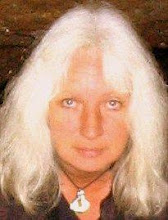
Hard thing for me to say but on his blog our Bomber Bradbury (borrowed the pic from Bomber) has made a call to overseas activists to Boycott New Zealand Goods on the back of John Key and our flash new government's decision to set a greenhouse gas emissions reduction target of only 10 to 20 per cent below 1990 levels at climate change negotiations in Bonn, Germany, rather than the forty percent that so many Kiwis have called for. And apparently even this is only conditional. We can only wonder to what new depths they can find plummet.
Bomber Bradbury:
"National are purposely misrepresenting the costs because they are the party of the farmers and big business, they refuse to make those industries pay for the pollution they create and National gutted the agricultural tax rebate for research necessary to create the technology to cut emissions. ACT have polluted National’s climate change because ACT are taking huge sums of cash from climate deniers like Alan Gibbs. The whole thing stinks to high heaven and we are losing our clean green image."
Gareth Renowden:
"It is now transparently obvious that this National-led government simply does not understand the real challenges presented by climate change. They do not appreciate the full seriousness of the situation that confronts the planet, they underestimate the need to act, and they have completely failed to make any coherent assessment of what could be done. That amounts to gross incompetence, and they should be held to account for it, both at the ballot box and in the court of public opinion."
Our flash Government, who seem to inhabit a different world from the rest of us, are claiming this ridiculously low emissions reduction target has gone down well at the UN Climate Change talks in Bonn. Not so, states one Geoff Keey, who is actually there. Instead, "at the beginning of day two of the negotiations, the NGOs at the talks put out their daily bulletin - ECO - with a focus on New Zealand. The newsletter is a daily tradition dating back years. It's a good light-hearted view of a deadly serious topic. The content speaks for itself," writes Geoff.
You can view the newsletter yourself by clicking here. It is a pdf file.
Geoff Keey:
"It’d be fair to say that some developed country delegates were relieved that the target wasn’t as low as they thought it was going to be. Expectations of New Zealand around here aren’t great at present. But overall I think it's seen as nothing more than a low opening offer. I also got the impression that negotiators and observers thought New Zealand’s conditional demands were over the top. One long-standing observer said to me, it seems that what New Zealand is doing with its demands is saying: “if the rest of the world is really nice to us and is willing to work really hard to reduce emissions, we’ll condescend to do something inadequate.” He also noted that “Kevin Rudd got a standing ovation in Bali, New Zealand didn’t get a single clap at Bonn.” Given that Rudd’s no climate hero, that’s not very promising."
Actions people can take
So, to people overseas, the only way to hurt this government and make them listen is to hit them in the purse strings, especially with our agricultural products, beef and lamb and dairy. Because the producers of these products are easily identifiable as the lobbyists behind this low emissions target. These are the people who are petrified that they will be forced to clean up their act in order to cut our greenhouse gas emissions.
Also people (no pressure, just a suggestion) might like to send our Prime Minister John Key a friendly little email telling him how you plan to boycott our goods due to our pathetic greenhouse gas emissions reduction target. Overseas public opinion may well go far to change this government's stance.
This is John Key's email address - john.key@parliament.govt.nz
New Zealand The Way It Was,
before this new lot took over; a country we could be proud of. I'd like to be proud of it again one day.














